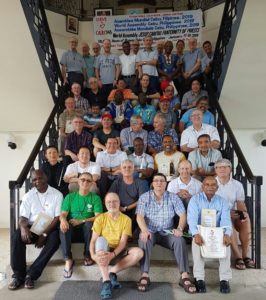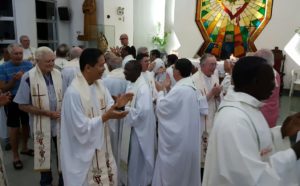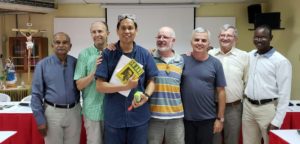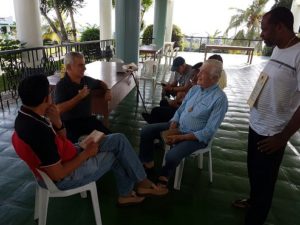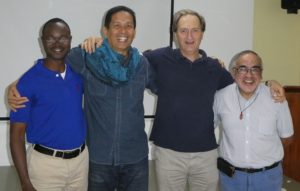In this report you find daily notes of Fr. Klaus Beurle, German diocesan priest who was visiting priests, bishops and cardinals in the Philippines from October 23 to November 15, 2018. He is a learning traveller depicting observations of daily life along with people in the streets of Manila, on the roads in northern and southern Philippines. He was eager to meet people of all walks of the society so as to get a vivid understanding of history,
culture and society and the values of the ever-open minded population of the Filipino society.
Dr. Klaus Beurle was invited by Filipino priests and encouraged by the Asian Responsible Fr. Arthur Charles from Pakistan of the Priests Fraternity Jesus Caritas inspired by Charles de Foucauld to visit priests and to share with them human and spiritual experiences, questions and visions. Charles de Foucauld, a French noble who first tried to make career as soldier and as researcher and who had lost his faith until he rediscovered the meaning of Christian faith. From his conversion on he wanted to live like Jesus in Nazareth. This led him to live among people who are farthest away from Jesus. He ended among the Tuareg in the Sahara where he was killed in 1916 among people to whom he became brother to all, universal brother. The Priests Fraternity, one of numerous associations or communities inspired by Brother Charles, emphasizes simplicity of life, adoration, sharing of personal life experiences.
The booklet invites readers to follow Fr. Klaus on his way to some places of the fascinating country with its 7101 islands and a population of 107 million people. Observations, conversations, discussions and reflections are touching basic issues of the Society and of the Catholic Church.
Read the complete report (PDF): Jesus Caritas Priests visiting priests 2019 0222-1





